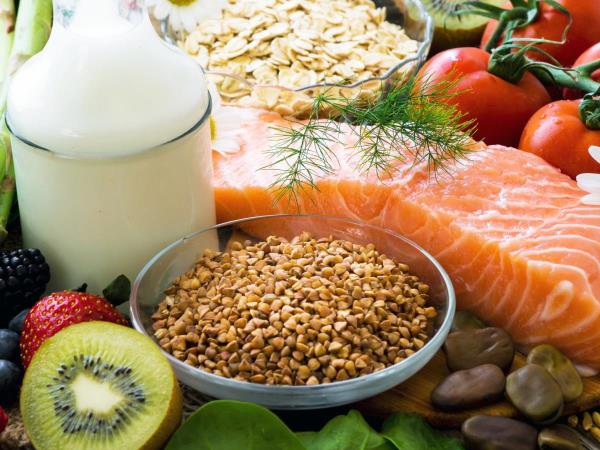- Beans
Beans are an excellent source of plant-based proteins and fiber. One cup of cooked beans (about 200 grams) contains approximately 15 grams of protein and 13 grams of fiber, which represents about half of the daily recommended amount of fiber. Additionally, they are rich in iron, magnesium, and potassium. Regular consumption of beans can help in regulating blood sugar and lowering cholesterol. A study published in the Journal of Nutrition showed that consuming legumes, such as beans, can reduce the risk of cardiovascular diseases by 22%.? - Eggs
Eggs are a natural source of high-quality proteins. One large egg contains around 6 grams of protein and only 70 calories. Moreover, they are rich in the antioxidants lutein and zeaxanthin, which are essential for eye health. A study published in the American Journal of Clinical Nutrition revealed that consuming one egg a day can reduce the risk of cataracts by 20%.? - Bananas
Bananas are an excellent source of potassium, which is crucial for maintaining normal blood pressure. A medium-sized banana contains approximately 400 mg of potassium, representing about 10% of the daily recommended amount. Additionally, they are rich in vitamin B6, which supports brain function, and contain around 3 grams of fiber, contributing to healthy digestion.? - Potatoes
Potatoes are often overlooked as a nutritious food, but they are rich in vitamin C, vitamin B6, and potassium. One medium-sized baked potato (about 150 grams) provides approximately 30% of the daily recommended amount of vitamin C and 15% of potassium. Moreover, it is a good source of fiber, especially if consumed with the skin. A study published in the Advances in Nutrition demonstrated that including potatoes as part of a balanced diet can contribute to better weight management.? - Yogurt
Natural yogurt is an excellent source of calcium, proteins, and probiotics that support digestive health. One cup (about 240 ml) of plain non-fat yogurt contains approximately 10 grams of protein and 30% of the daily recommended calcium intake. Additionally, the probiotics in yogurt help maintain a healthy intestinal flora, crucial for a strong immune system. A study published in the British Journal of Nutrition showed that regular yogurt consumption can reduce the risk of developing type 2 diabetes by 18%.? - Pasta
Whole-grain pasta is a good source of complex carbohydrates that provide long-lasting energy. One cup of cooked whole-grain pasta (about 140 grams) contains around 6 grams of protein and 4 grams of fiber. Moreover, they are rich in B vitamins, important for energy metabolism. Opting for whole-grain pasta instead of refined ones can help with weight management and reduce the risk of cardiovascular diseases.? - Rice
Brown rice is a whole source of carbohydrates and contains more fiber than white rice. One cup of cooked brown rice (about 195 grams) provides around 5 grams of protein and 3.5 grams of fiber. Additionally, it is a good source of magnesium, phosphorus, and selenium. A study published in the Journal of the American Dietetic Association revealed that consuming whole grains, such as brown rice, can decrease the risk of developing type 2 diabetes by 16%.?
Incorporating these foods into your diet will not only be friendly to your wallet but will also contribute to better health and well-being. They can help you prepare diverse and delicious meals that will meet your nutritional needs and support your health.









 Would you like to be informed about news on the website?
Would you like to be informed about news on the website?

